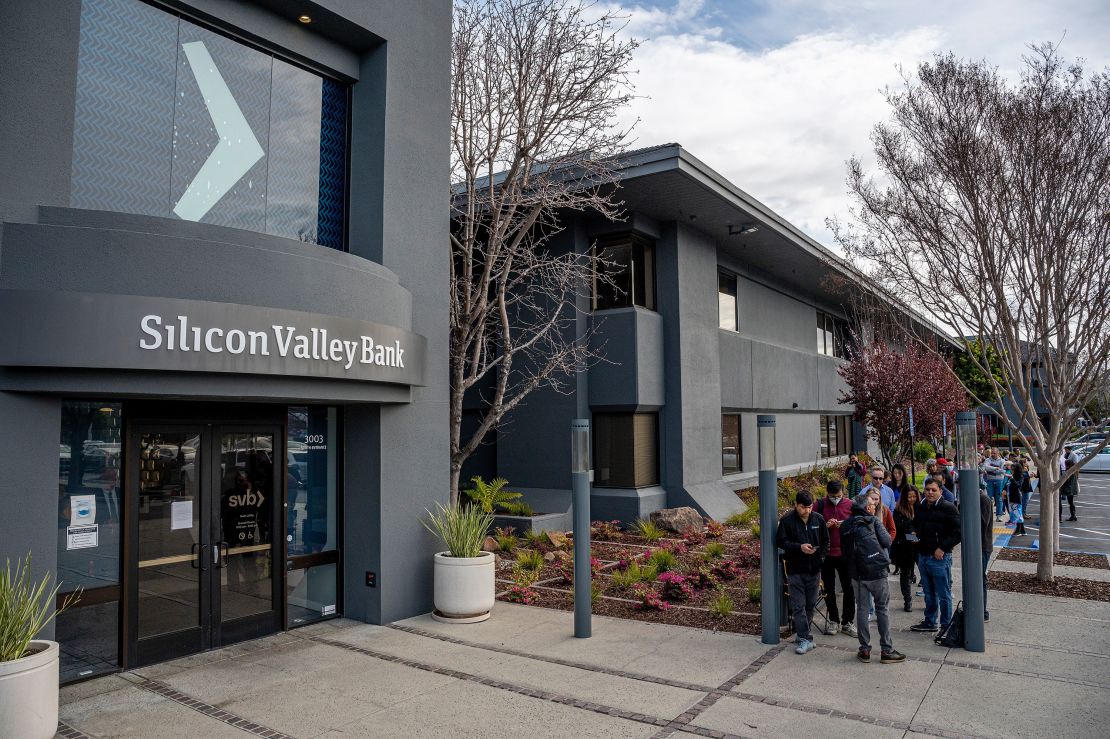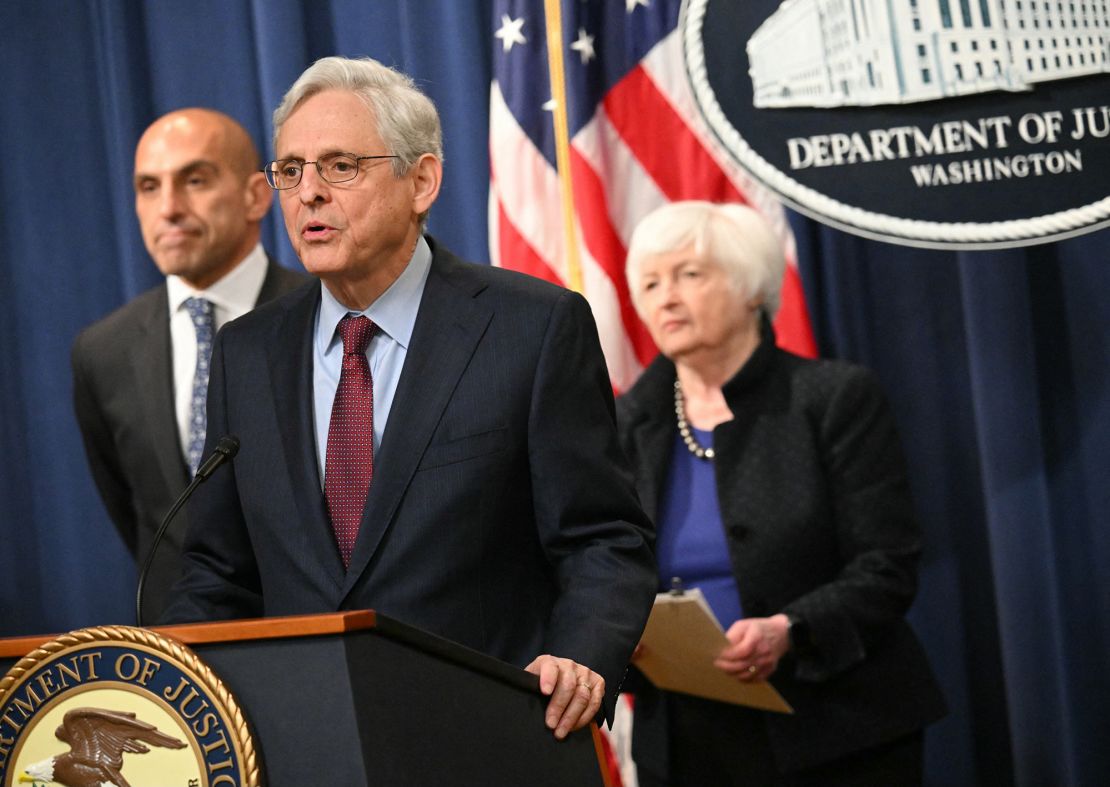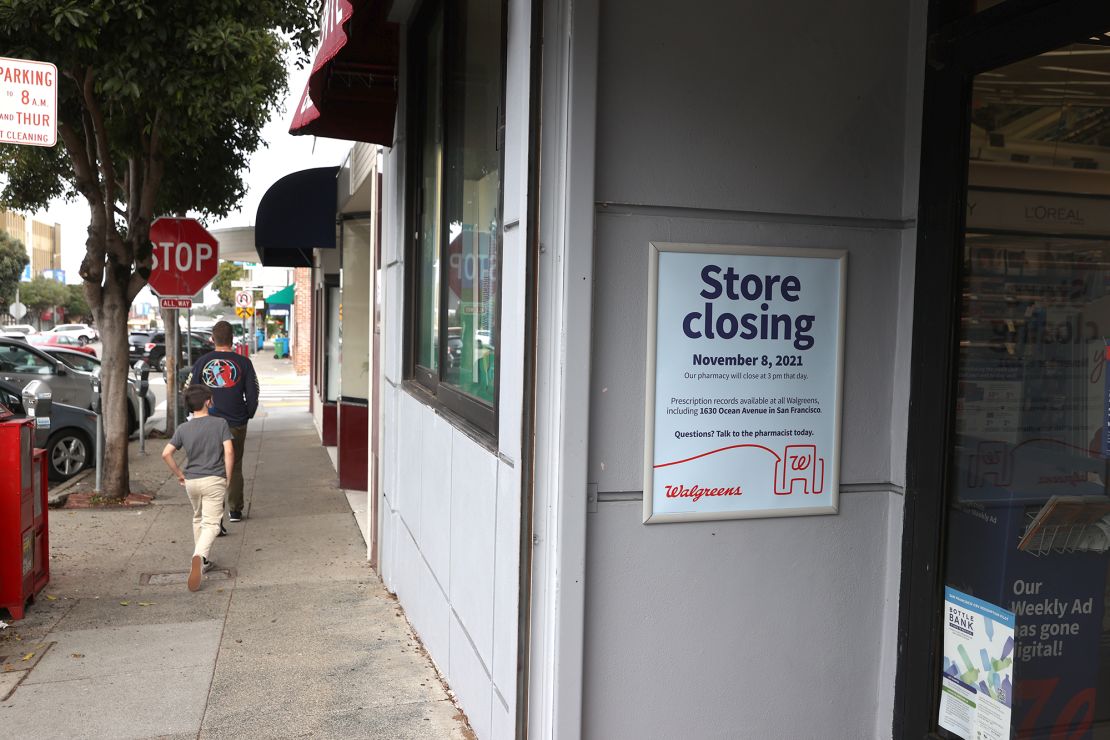For some top executives, 2023 is a year they would rather forget.
Some of their companies lost billions of dollars. Some have lost their jobs. And others badly damaged their reputations and face even more trouble ahead in 2024.
CNN Business ended the year celebrating Microsoft’s Satya Nadella as CEO of the year, Taylor Swift as business leader of the year and tapped United Auto Workers union President Shawn Fain as its first labor leader of the year. But it seemed only fair to note 10 CEOs and chairpersons for whom 2023 did not go as well as planned.
In some ways, Elon Musk had a much better year than your typical CEO, let alone the other members of this group.
Tesla: Shares of Tesla, his most profitable company, more than doubled this year, recapturing more than half of the value they lost during a disastrous 2022. Tesla has already topped its previous annual sales record in just the first three quarters of the year, and it finally delivered its first long-awaited, long-promised Cybertruck.
But Tesla encountered plenty of problems in 2023. The company announced a series of price cuts for its vehicles to keep up demand in the face of increased electric vehicle competition from other automakers, and that squeezed Tesla’s profit margins. And while the Cybertruck may be technically “in production,” Musk warned investors that it would take more than a year before Tesla started making money on it.
“It is going to …require immense work to reach volume production and be cash flow positive at a price that people can afford,” he warned investors in October, just before its debut.
And federal safety regulators effectively forced Tesla to recall virtually all of its more than 2 million vehicles on US roads to limit the use of its Autopilot system after they said it posed a safety threat, years after Musk promised they would already be serving as fully-autonomous robotaxis. Earlier in the year, Tesla was forced to recall nearly all of its 363,000 US vehicles equipped with its so-called “Full Self Driving” driver assist software. He said self-driving vehicles and robots, another planned but not-yet-delivered product, were a key to his expectations that Tesla would some day be the most valuable company on the planet.
Tesla defended its Autopilot feature after an investigation by the Washington Post that found at least eight serious accidents, including some fatalities, in which the the Autopilot feature should not have been engaged in the first place. The story ran just before the recall was announced.
“Safety metrics are emphatically stronger when Autopilot is engaged than when not engaged,” it claimed in a tweet following the Post report.
Musk’s other companies also had their share of setbacks.
SpaceX: At his space exploration company, SpaceX, uncrewed test flights of the gargantuan deep-space rocket system that a decade ago Musk also promised would already be bringing people to the moon and likely on the way to Mars, Starship, ended in fiery explosions instead – not once, but twice.
Tesla and SpaceX did not respond to requests for comment.
SpaceX said the two explosions of Starship would help the company.
“Success comes from what we learn, and today’s test will help us improve Starship’s reliability as SpaceX seeks to make life multiplanetary,” it said in a tweet after the second explosion, a statement similar to what it said after the first.
X: Of course it was X, the social media platform formerly known as Twitter that Musk bought in late 2022, that had arguably the worst year of any of Musk’s companies. It has seen advertisers, its overwhelming source of revenue, flee because of the way it is being run under his ownership.
Musk in September said X sales have tumbled 60%, and he threatened to sue the Anti-Defamation League as a result after it said hate speech surged on the platform following Musk’s purchase of the company.
In June, Musk gave up the CEO job, tapping Linda Yaccarino, a former NBCUniversal marketing executive, to try to win back advertisers. But his own actions as X’s owner, including retweeting and endorsing a post that said that Jewish communities had been pushing a “hatred against Whites,” led to another wave of advertisers pulling their ad dollars.
While he later apologized for the post and called it stupid, in the same public appearance, he said that advertisers who had pulled their ad dollars should “Go. F**k. Yourself.” He took the shot at advertisers, rather than trying to repair relations, even though he acknowledged “this advertising boycott … is going to kill the company.”
Musk then followed his tirade against advertisers looking for brand safety by inviting controversial users to return, including some who had previously been banned for violating the service’s previous standards, such as conspiracy theorist Alex Jones, as well as pro-Nazi accounts.
The range of problems, many of them self-inflicted, make 2023 a year Musk would probably rather forget. But he’s hardly the only one.
A year ago, Bob Iger was hailed as a returning hero at Disney, tapped to rescue the media giant he had formerly run from 2005 through the end of 2021 from the problems inflicted during the short and controversial tenure of his hand-picked successor and predecessor, Bob Chapek,
The return of Iger seemed at first to be a winning move. Activist shareholder Nelson Peltz initially backed off his plans to win a seat on Disney’s board. But the problems at Disney, including losses at its Disney+ streaming service, continued. And Iger’s solution to stem the losses – more ads on the service, higher subscription fees and less content – did little stop the red ink. In fact losses at the service soared, sending shares plunging further.
Disney and other studios and streaming services were hit by a strike by both the Writers Guild of America and SAG-AFTRA, which represents 160,000 actors, which virtually shut down film and television production. The strike eventually ended after nearly five months with the unions winning many of their goals.
In July, Iger mused publicly that the company’s vast television business, made up of former jewels like ABC and ESPN, “may not be core” to its business, suggesting a sale was on the horizon.
In November, Peltz renewed his proxy fight with the company. Disney shares end the year about where they were when its board decided to fire Chapek and bring back Iger. Disney did not respond to a request for comments on the problems Iger faced this year.
A year ago, few people outside of the insular world of tech start-ups had heard of Silicon Valley Bank. Fewer still knew that Greg Becker was the CEO. He undoubtedly wishes that was still the case.
But in March when Becker disclosed the bank was facing a liquidity problem and that it hoped to raise $2.25 billion in capital, while also selling $21 billion in assets, it sparked a crisis in the American banking system still scarred by 2008’s financial collapse.
Becker’s plan to sell primarily US Treasuries, which would cause it to report a $1.8 billion loss due to rising interest rates, only made the situation more unstable. The fact that it disclosed the problems before it had nailed down the investors it would need to solve the problem, and it admitted that its assets had lost so much value, caused a run on the bank.

Customers rushed to withdraw about $1 million a second, or $42 billion in the course of 10 hours. The bank collapsed within 48 hours, making it at the time the second largest bank collapse in US history – as well as the first digital bank run in American finance, a direct result of its cozy relationship with venture capitalists and tech companies.
SVB’s later revealed that it had previously been cautioned by regulators at the Federal Reserve Bank of San Francisco but had not adjusted its practices.
But Becker tried to claim the collapse was unforseeable.
“I never envisioned myself or SVB being in this situation,” former CEO Greg Becker said in remarks to a Senate committee investigating the collapse, adding that he was “truly sorry for how this has impacted SVB’s employees, clients, and shareholders.”
But the problems at SVB, including the bank run, caused a string of other bank collapses among similar sized banks, raising fears of a meltdown of the US financial system similar to what sparked the Great Recession.
Fortunately, that never happened. Promises from the Treasury Department to extend credit to banks, and the Federal Deposit Insurance Corporation promised that depositors would be made whole beyond the normal limits of its insurance, helped to stem the panic.
As for Becker, he was of course out of a job and his stock holdings in the bank were essentially worthless, although he had sold $3.6 million of his shares just weeks before the collapse. So he had enough money left to immediately take a family trip to Hawaii, which only sparked more outrage.
Just days after Silicon Valley Bank’s collapse in March, Swiss investment bank Credit Suisse told investors it had found “material weakness” in its financial reporting that meant risks had not been properly assessed.
And only a month before that disclosure, the bank reported its worst annual performance since the global financial crisis.
Depositors scrambled to withdraw funds during that time — the bank later revealed that customers pulled out 67 billion Swiss francs ($75.2 billion) from their accounts in the first three months of the year. On March 19, the bank agreed to be purchased by larger rival UBS for 3 billion Swiss francs ($3.25 billion), about 60% less than the bank was worth when markets closed on the Friday before the weekend deal.
Körner had been named CEO in July 2022, and some of the investment bank’s problems clearly predated his tenure. But he was the final CEO of the once-powerful banking giant.
In early 2022, crypto guru and Binance CEO Changpeng Zhao was one of the richest people in the planet, according to Bloomberg’s Billionaire Index, with a net worth an nearly $100 billion.
But the end of 2023, he pleaded guilty to US charges of money laundering. Binance agreed to pay a record $4 billion in penalties and fines. Zhao himself paid $200 million in fines and stepped down as CEO of the crypto exchange he had founded.
US Justice Department officials described it as the biggest-ever corporate resolution that included criminal charges for an executive.
“The Binance platform was facilitating some truly horrible stuff – everything from terrorist financing to ransomware actions, child pornography and various scams and frauds,” a senior Treasury official told reporters.

Zhao’s problems are far from over. He faces a maximum of 10 years behind bars, though his ultimate sentence will likely be far lower. Federal guidelines likely place the high end of a possible sentence for Zhao around 18 months. Sentencing is ultimately decided by a judge.
“Admittedly, it was not easy to let go emotionally. But I know it is the right thing to do,” Zhao said in tweet the day the guilty plea was announced. “I made mistakes, and I must take responsibilities. This is best for our community, for Binance, and for myself.”
Binance did not respond to a request for additional comment on its legal woes.
China Renaissance, a major investment bank and private equity firm based in Beijing, disclosed in February that it was “unable to contact” its CEO Bao Fan. And that was only the start of the tale of Bao’s troubles.
In March the firm, a top dealmaker in the country’s tech industry, announced it would suspend trading of its shares and delay the release of its annual results because it still couldn’t get in touch with him.
In June, state media disclosed that Bao had been in the custody of the country’s top anti-graft watchdog since his disappearance and had had his detention extended.
China Renaissance has named an interim replacement in the meantime, appointing an acting chief executive in October.
It wasn’t long ago that Country Garden was the largest home builder in China and Yang Huiyan was one of the richest women on the planet. But after a disastrous 2023, that seems like a distant memory
In October, Country Garden defaulted on a payment on a $500 million bond. It was taken as a sign that China’s all-important property market was languishing in a deep downturn that poses a major threat to the country’s growth prospects.

In August, ahead of that default, Bloomberg reported that Yang has lost more wealth than any billionaire in the world in the past two years, plunging 84% since June 2021, or $28.6 billion.
Yang and her family have pumped in billions of dollars into Country Garden in the form of new loans and share and bond purchases, but won’t be able to turn things around on their own without an improvement in the nation’s real estate market.
Gautam Adani also suffered a massive blow to his fortune in early 2023.
In the fall of 2022 the Indian mogul passed Jeff Bezos to become the second-richest person on the planet, according to the Bloomberg Billionaire Index at that time. It estimated his net worth at that time was $146.9 billion. As of Tuesday the index put his net worth at a still very healthy $84.3 billion, but that’s down $62.6 billion, or 43% from that September 2022 level.
The problems came early in the year when short-seller Hindenberg Research, which makes money by betting that a company’s stock will go down, came out with a scathing report that accused Adani of pulling off “the largest con in corporate history.”
The Adani Group fought back with a 400-page rebuttal, calling the report “nothing but a lie” and charging that Hindenberg’s shorting of overseas-traded bonds and derivatives amounted to securities fraud, and that the report was an attack on India.
Hindenberg stood by the report, and while some of Adani businesses, including Adani Ports, have touched record highs lately, many are yet to recover the losses they suffered this year.
When Rosalind Brewer took the helm at drug store giant Walgreen Boots Alliance in March 2015, just a year after the start of the pandemic, she was the only Black woman at that time to lead a Fortune 500 company, and just the third in history to do so.
But Brewer didn’t last long in the job. She stepped down in September, after the stock had fallen 32% year-to-date. The departure came two months after the company reported a big drop in earnings and reduced its profit guidance going forward, which it attributed to softening consumer spending and a pullback in demand for Covid vaccines.
“I am proud of what we accomplished together,” she said in the announcement of her departure. “We’ve improved the lives of our employees [and] expanded healthcare services for our customers.”

Much of her time had been spent scaling back to cut costs, closing 450 stores in the United States and United Kingdom, and trimming 10% of its corporate and US office support workforce. And hers was not the only drugstore chain that was struggling. Rival Rite-Aid filed for bankruptcy in October.
But her actions had also sparked pushback from front-line pharmacists. Despite not being in a union, groups of pharmacists organized walkouts this fall, after Brewer’s departure, to protest working conditions that began during the pandemic. During Brewer’s tenure, the pharmacists said the company put customer safety at risk.
The actions closed a handful of pharmacies briefly, and slowed business at several others; Walgreens told CNN the impact has been “minimal.” But it was an usual job action to take given the lack of a union, and a sign of troubled employee relations at the company.
Bernard Looney was a BP lifer, joining the company at age 21 in 1991. He was tapped as CEO in July 2020, in the midst of the pandemic, when lockdown orders around the globe had crushed the demand for oil. The industry has also faced increased demands to reduce its planet-heating emissions to combat climate change.
But neither of those things was what led to Looney’s downfall. Instead he resigned in September after admitting that he had not been “fully transparent” about “historical relationships with colleagues,” according to a statement from the oil giant.
In December BP announced that he would forfeit about $40 million in severance because the company’s board determined he had engaged in “serious misconduct” by not fully disclosing his relationships with employees.
CNN’s Oliver Darcy, Samantha Delouya, Matt Egan, Nicole Goodkind, Laura He, Krystal Hur, Parija Kavilanz, Diksha Madhok, Allison Morrow, Evan Perez, Mark Thompson, Michelle Toh, Jordan Valinsky and Jackie Wattles contributed to this report
Read the full article here




